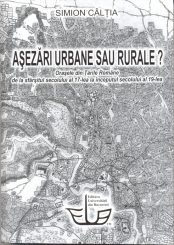Only logged in customers who have purchased this product may leave a review.
EDUCAȚIE NON-FORMALĂ, INTELIGENȚĂ ARTIFICIALĂ ȘI VALORILE TINERILOR. UN STUDIU COMPARATIV ȘI LONGITUDINAL 2016–2024
- Autor: Marin BURCEA, Oana MOȘOIU, Florina CREȚU (CURTEANU)
- An aparitie: 2025
- Numar de pagini: 126
- Format: B5
- ISBN: 978-606-16-1612-1
- Limba textului: română
“Non-formal education, artificial intelligence and youth values. A comparative and longitudinal study 2016–2024” represents the first large-scale empirical research in Romania that documents the transformations in extracurricular educational perceptions and practices during an important period for Romanian society. The authors conduct an analysis of the evolution of attitudes towards non-formal education through a longitudinal methodology rare in the landscape of local educational research.
The scientific contribution of the volume consists in documenting a paradigmatic shift in the conceptualization of success in life, by reversing value preferences from the “visionary” model to the “executive” one, a transformation with important implications for future educational policies. The research integrates the technological dimension for the first time by investigating the impact of artificial intelligence tools on educational behaviors, revealing unexpected tensions between digitalization and participation in traditional extracurricular activities. The methodology used allowed the identification of a novel discovery: parents approach non-formal education predominantly as a compensatory approach for children’s perceived deficits, while students increasingly orient themselves towards educational autonomy, contrary to adults’ preferences for collaboration. The correlation analysis reveals the repositioning of young people’s preferences from arts and general knowledge towards pragmatic fields such as sports, entrepreneurship and technology, reflecting the adaptation to the demands of the contemporary labor market, but raising questions about the balance between utilitarian training and overall development. Through the breadth of data collected and comparisons between groups at different points in time, the paper sets a new standard for Romanian educational research, proposing an interpretive framework for understanding how rapid socio-technological transformations are reflected in the educational ecosystem of the Romanian family and school.






Reviews
There are no reviews yet.